The robots are coming, and they’re coming fast. In this fascinating Fresh Air interview, tech writer John Markoff talks about several ways that intelligent machines are likely to profoundly change our lives over the next few years. From self-driving cars to peopleless warehouses, intelligent machines will play major roles in shaping our world. He makes a critical distinction between artificial intelligence (AI) and intelligence augmentation (IA), two schools of research that take radically different approaches to the relationship between humans and machines. As a bonus, the interview ends with what is probably the funniest robot song ever recorded.
npr.org/sections/alltechconsidered/2015/08/20/433000643/how-close-are-we-really-to-a-robot-run-society
Category: Chapter 15 Is Artificial Intelligence Real?
AI
We generally think about digital technology as something that’s outside of us. I think there’s a clear boundary between me and my technology. But that boundary is getting fuzzier all the time. In this fascinating talk to the Long Now Foundation, science fiction writer Ramez Naam makes a compelling case that the boundary is about to disappear forever. He discusses cutting edge research in many related fields and the ethical implications of that research as it finds its way into our products and our bodies.
The Long Now Foundation hosts an excellent series monthly talks related to its important mission of helping us see the long view; this is part of that ongoing series. While you’re on their site, take some time to look for other gems.
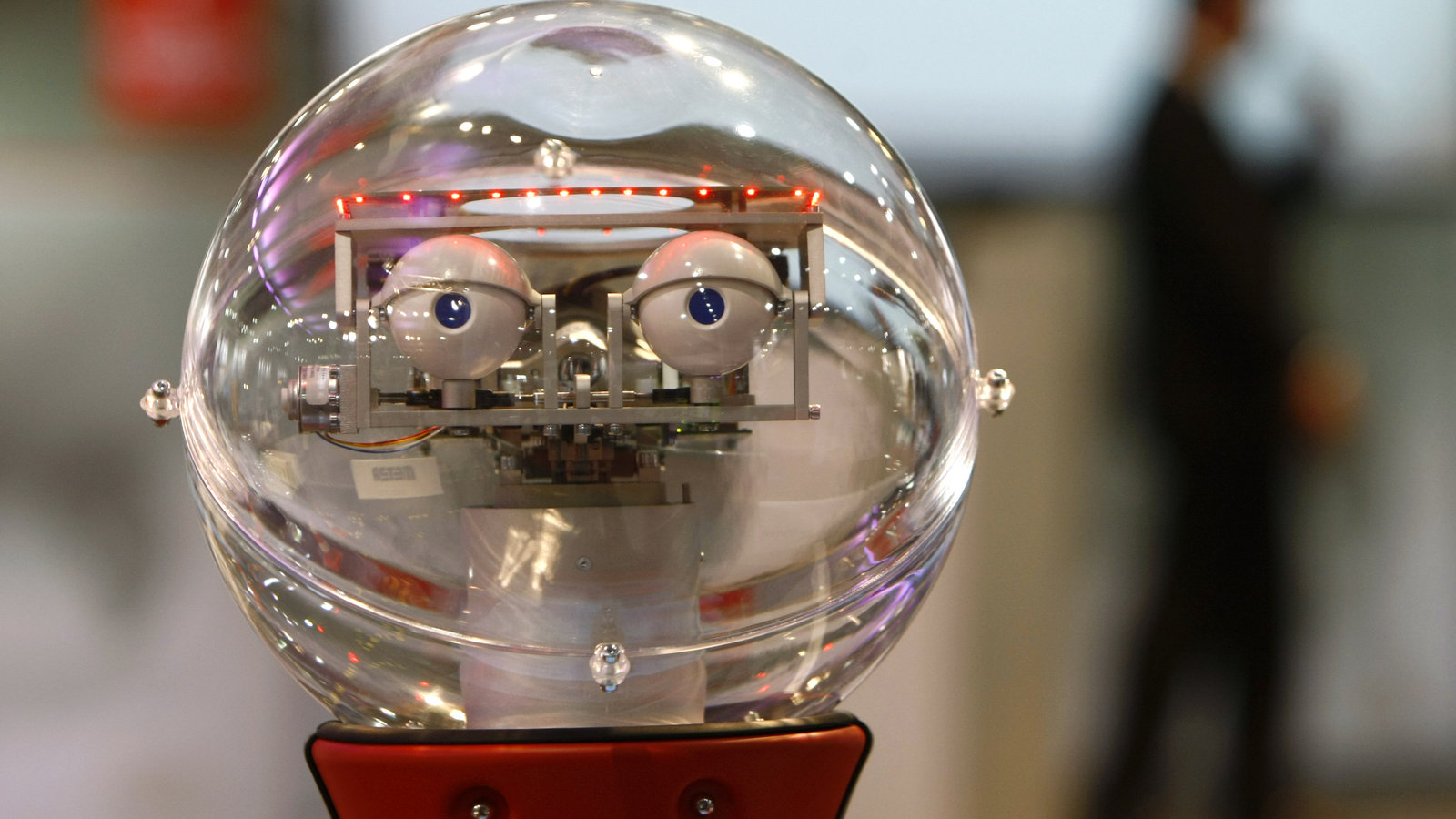
More jobs every day are being automated—done by machines rather than humans. In this thought-provoking Fresh Air interview, Silicon Valley executive Martin Ford says that all kinds of jobs—even many that we assume are machine-proof—are threatened by advances in hardware and software. The implications for our economy and our society are far-reaching.
http://www.npr.org/sections/alltechconsidered/2015/05/18/407648886/attention-white-collar-workers-the-robots-are-coming-for-your-jobs
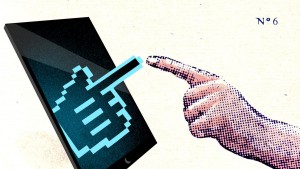 This is a big question with a multitude of answers. NPR’s new program/podcast Invisibilia answers with three stories. The first one looks at the big picture with questions about artificial intelligence, wearable computers, and the possibilities for human/computer co-evolution. The other two stories look at specific, personal, right-now examples of human character changes as a result of digital technology.
This is a big question with a multitude of answers. NPR’s new program/podcast Invisibilia answers with three stories. The first one looks at the big picture with questions about artificial intelligence, wearable computers, and the possibilities for human/computer co-evolution. The other two stories look at specific, personal, right-now examples of human character changes as a result of digital technology.
npr.org/programs/invisibilia/385792677/our-computers-ourselves
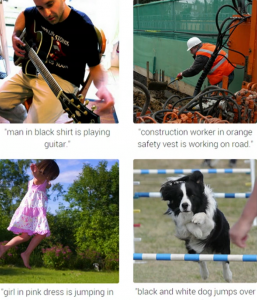 For decades researchers have experimented with machine learning—software that can improve with experience without being reprogrammed. That research has paid off in a number of applications, including the intelligent search engines that we use every day. But recent breakthroughs in a field called deep learning are likely to bring radical transformations to our lives very soon. This TED Talk by Jeremy Howard explains the technology and touches on a few applications and implications. Spoiler: there’s good news and bad news….
For decades researchers have experimented with machine learning—software that can improve with experience without being reprogrammed. That research has paid off in a number of applications, including the intelligent search engines that we use every day. But recent breakthroughs in a field called deep learning are likely to bring radical transformations to our lives very soon. This TED Talk by Jeremy Howard explains the technology and touches on a few applications and implications. Spoiler: there’s good news and bad news….
[ted id=2155 lang=en]
 War and technology have been intertwined throughout human history. Today’s digital technology is creating a whole new form of war that’s all but invisible to most of us. In his book @War, Shane Harris describes the war that’s waged on the Internet and describes the relationship between government and the tech industry that makes that war possible. In this NPR Fresh Air program he’s interviewed by Terry Gross.
War and technology have been intertwined throughout human history. Today’s digital technology is creating a whole new form of war that’s all but invisible to most of us. In his book @War, Shane Harris describes the war that’s waged on the Internet and describes the relationship between government and the tech industry that makes that war possible. In this NPR Fresh Air program he’s interviewed by Terry Gross.
 Drones are, in essence, flying robots, capable of carrying out all kinds of tasks, from acts of war to acts of art. This Huffington Post article focuses on the use of drones to capture video footage that would be difficult or impossible to get by conventional means.
Drones are, in essence, flying robots, capable of carrying out all kinds of tasks, from acts of war to acts of art. This Huffington Post article focuses on the use of drones to capture video footage that would be difficult or impossible to get by conventional means.
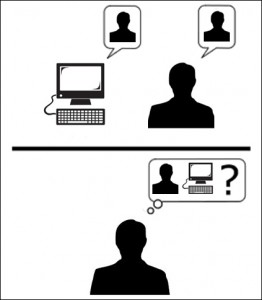 You may have heard the headlines: a computer passed the Turing test, fooling some judges into thinking it was a human. This short piece by NPR’s Goeff Nunberg puts the event into perspective, explaining why he believes that the machines we use aren’t anything like the compelling operating system portrayed by Scarlett Johansen in the film Her.
You may have heard the headlines: a computer passed the Turing test, fooling some judges into thinking it was a human. This short piece by NPR’s Goeff Nunberg puts the event into perspective, explaining why he believes that the machines we use aren’t anything like the compelling operating system portrayed by Scarlett Johansen in the film Her.
npr.org/blogs/alltechconsidered/2014/07/01/323984864/do-feelings-compute-if-not-the-turing-test-doesnt-mean-much
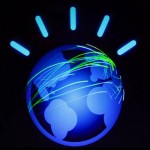 IBM’s Watson hasn’t been sitting on its circuits since it won the special Jeopardy! championship game in 2011. This Wired article describes how doctors are putting Watson to work as an expert advisor to help them diagnose cancer and save lives.
IBM’s Watson hasn’t been sitting on its circuits since it won the special Jeopardy! championship game in 2011. This Wired article describes how doctors are putting Watson to work as an expert advisor to help them diagnose cancer and save lives.
wired.co.uk/news/archive/2013-02/11/ibm-watson-medical-doctor
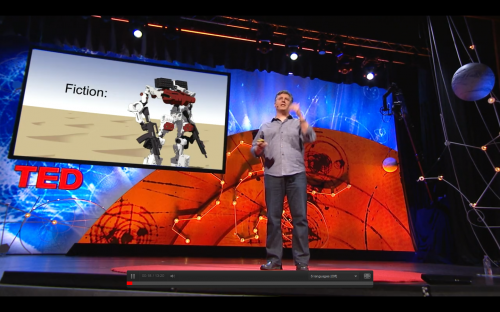 The robot drone is rapidly changing the face of war—and peace. In this gripping TED talk Daniel Suarez describes the very real—and very scary—threats robotic weapons pose to civilized society. He makes a compelling case for an international treaty on robotic arms control and a global ban on killer robots.
The robot drone is rapidly changing the face of war—and peace. In this gripping TED talk Daniel Suarez describes the very real—and very scary—threats robotic weapons pose to civilized society. He makes a compelling case for an international treaty on robotic arms control and a global ban on killer robots.
http://www.ted.com/talks/daniel_suarez_the_kill_decision_shouldn_t_belong_to_a_robot.html